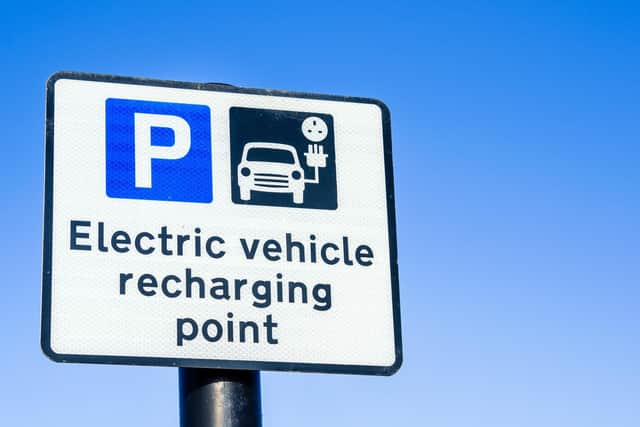Less than a third of Glaswegians are planning on buying an electric car despite introduction of LEZ
and live on Freeview channel 276
Fewer than a third of people in Glasgow who intend to buy a new car over the next two years will choose electric, despite the introduction of the city centre LEZ - a survey has shown.
A total of 22 per cent of Glaswegians surveyed intend to purchase a petrol vehicle - even with plans for the sale of new petrol and diesel-only vehicles to be banned in 2030.
Advertisement
Hide AdAdvertisement
Hide AdAccording to The 2022 Glasgow Household Survey, which was presented to the council’s Operational Performance and Delivery Scrutiny Committee last week, people are worried about electric and hybrid vehicles being too expensive, a potential lack of chargers, and uncertainty over range and running costs.
Around 56 per cent of residents surveyed said they had a vehicle in their household. As it stands the majority of residents in Glasgow who own a car have a petrol fuelled motor.


Just over one in five (22 per cent) of residents surveyed intend to buy a new vehicle or replace their existing motor within two years.
The council’s 2022 Glasgow Household Survey of 1000 city residents revealed the hesitancy over electric vehicles.
Advertisement
Hide AdAdvertisement
Hide AdOut of the 22 per cent of Glasgow respondents who intend to purchase a new vehicle or replace their existing one within the next two years:
- 28 per cent plan to buy an electric vehicle.
- 27 per cent intend to purchase a hybrid vehicle.
- 22 per cent plan to get a petrol vehicle.
- 8 per cent intend to splash out cash on buying a diesel vehicle.
Glasgow City Council had installed 268 publicly available charge points by March this year. It intends to put in another 164 charge points for motorists in 2022.
In addition to the public charge points, the local authority installed 115 charging spaces for its own electric vehicle fleet.
Bosses have set out proposals that all of the council’s 2000 vehicles should be emissions free by the end of 2029 with only electric and hydrogen-powered vehicles used to ‘deliver crucial city services.’
Comment Guidelines
National World encourages reader discussion on our stories. User feedback, insights and back-and-forth exchanges add a rich layer of context to reporting. Please review our Community Guidelines before commenting.